
Salvador: The Heartbeat of Brazilian Culture
Salvador, the vibrant capital of the Bahia state in Brazil, is a city that pulses with life and history. Known for its rich Afro-Brazilian culture, Salvador offers a unique blend of traditional and modern influences. The city's historic Pelourinho district is a UNESCO World Heritage Site, with its cobbled streets, colorful colonial buildings, and lively squares providing a picturesque setting that takes you back in time. The music, dance, and art of Salvador are deeply rooted in African traditions, making it a cultural hub like no other. Salvador is also famous for its festivals, the most renowned being the Carnival, which rivals even Rio de Janeiro's in terms of energy and participation. The city’s beaches, such as Porto da Barra and Flamengo, offer stunning coastal views and are perfect for relaxation and water sports. The local cuisine is a gastronomic delight, featuring dishes like acarajé and moqueca that are rich in flavor and history. For those interested in spirituality, Salvador’s churches, such as the São Francisco Church and Convent, showcase remarkable baroque architecture and intricate gold leaf designs. The city is also home to the Bonfim Church, a pilgrimage site known for its miraculous powers. Whether you're exploring the bustling markets, savoring local delicacies, or enjoying the vibrant nightlife, Salvador promises an unforgettable experience.
Local tips in Salvador
- Visit during Carnival for an unforgettable experience filled with music, dance, and parades.
- Explore Pelourinho on foot to fully appreciate its historic charm and vibrant street life.
- Try the local street food; acarajé, a deep-fried ball of black-eyed pea dough, is a must.
- Be cautious with your belongings, especially in crowded areas, to avoid petty theft.
- Use sunscreen generously; Salvador's tropical climate means strong sun year-round.
- Learn a few basic Portuguese phrases; it will enhance your interaction with locals.
- Take a boat trip to the nearby islands for a relaxing day away from the city buzz.
Neighbourhoods in Salvador
Salvador: The Heartbeat of Brazilian Culture
Salvador, the vibrant capital of the Bahia state in Brazil, is a city that pulses with life and history. Known for its rich Afro-Brazilian culture, Salvador offers a unique blend of traditional and modern influences. The city's historic Pelourinho district is a UNESCO World Heritage Site, with its cobbled streets, colorful colonial buildings, and lively squares providing a picturesque setting that takes you back in time. The music, dance, and art of Salvador are deeply rooted in African traditions, making it a cultural hub like no other. Salvador is also famous for its festivals, the most renowned being the Carnival, which rivals even Rio de Janeiro's in terms of energy and participation. The city’s beaches, such as Porto da Barra and Flamengo, offer stunning coastal views and are perfect for relaxation and water sports. The local cuisine is a gastronomic delight, featuring dishes like acarajé and moqueca that are rich in flavor and history. For those interested in spirituality, Salvador’s churches, such as the São Francisco Church and Convent, showcase remarkable baroque architecture and intricate gold leaf designs. The city is also home to the Bonfim Church, a pilgrimage site known for its miraculous powers. Whether you're exploring the bustling markets, savoring local delicacies, or enjoying the vibrant nightlife, Salvador promises an unforgettable experience.
When is the best time to go to Salvador?
Iconic landmarks you can’t miss
Museu Náutico da Bahia - Farol da Barra
Discover Brazil's maritime heritage at the Museu Náutico da Bahia, housed in the iconic Farol da Barra, offering history and stunning coastal views.
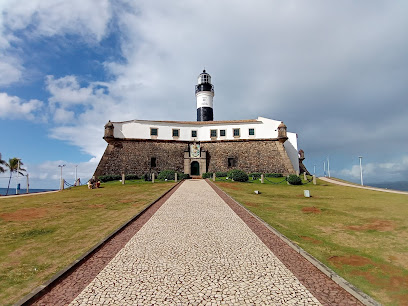
Elevador Lacerda
Ascend to breathtaking views of Salvador! Experience a ride on one of the world's first urban elevators, connecting history and culture in 30 seconds.
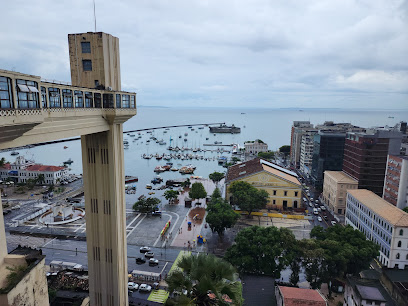
Morro do Cristo
Discover panoramic views and a symbol of faith at Salvador's Morro do Cristo, a must-see landmark in the Barra neighborhood.
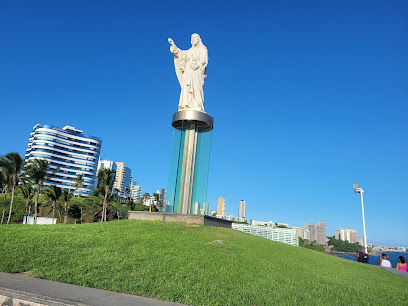
Monumento As Meninas do Brasil (Gordinhas)
Iconic monument in Salvador celebrating the beauty and diversity of Brazilian women, a vibrant symbol of the city's rich cultural heritage.
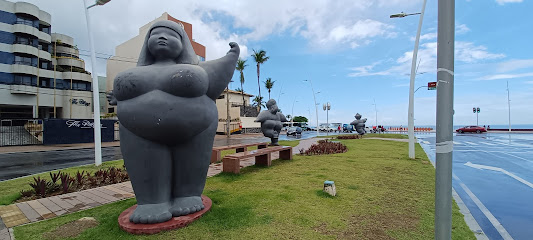
Square Two July
Discover Salvador's vibrant heart at Square Two July: history, culture, and natural beauty converge in this iconic urban oasis.
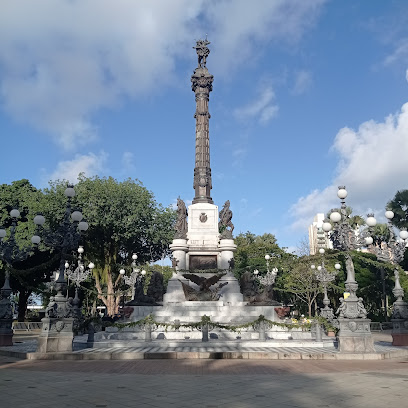
Largo Terreiro de Jesus
Experience the vibrant culture, stunning architecture, and rich history of Largo Terreiro de Jesus in Salvador's Pelourinho district.
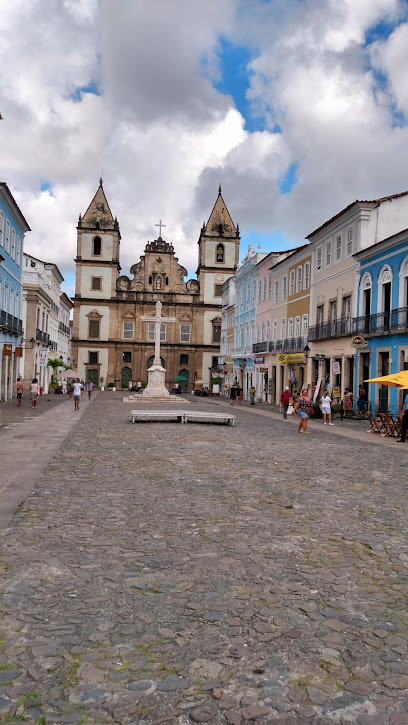
Casa do Carnaval da Bahia
Experience the sights, sounds, and history of Bahia's world-famous Carnival at this vibrant and interactive museum in the heart of Pelourinho.
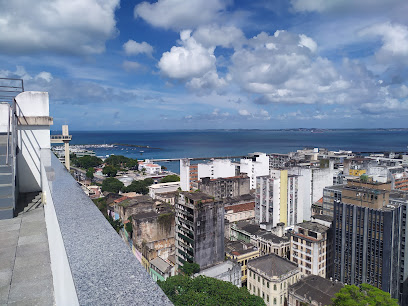
Bahia Museum of Art
Discover 5,000+ works of art at Bahia's oldest museum, featuring Brazilian, Oriental, and European collections in a historic palace setting.
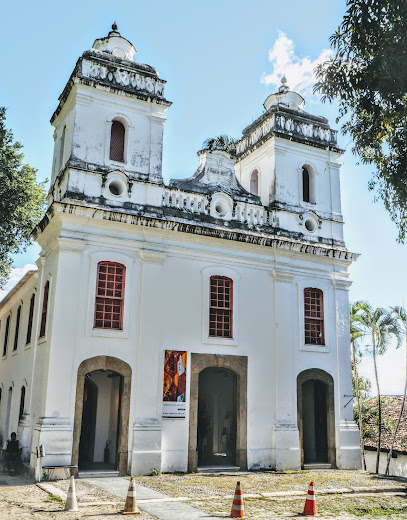
Centro Histórico
Experience the vibrant history and culture of Centro Histórico in Salvador, a UNESCO World Heritage site filled with colorful streets, rich traditions, and local flavors.
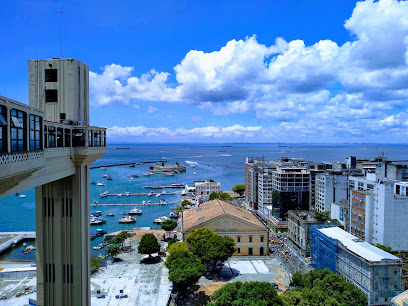
Cathedral of Salvador
Discover the Catedral Basílica de Salvador, a stunning blend of architectural styles and a treasure trove of Brazilian sacred art in Pelourinho.
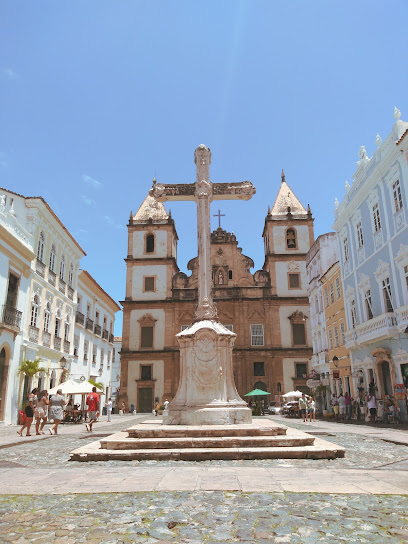
PASTEL DA BINA/Tempero do Camaleon
Savor authentic Brazilian pastries at PASTEL DA BINA in Salvador's Santo Antônio Além do Carmo, offering delicious flavors and stunning bay views.
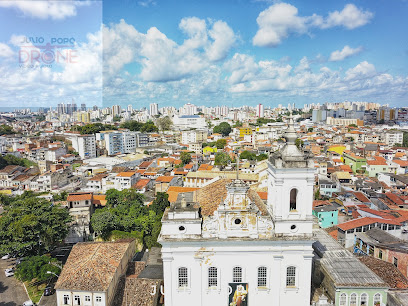
Fallen Cross Monument
A poignant landmark in Salvador's Pelourinho, commemorating a lost cathedral with stunning bay views and rich historical significance.
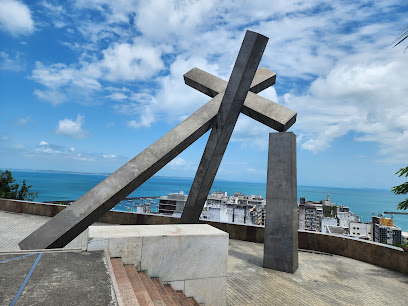
Centro Histórico de Salvador, Bahia
Discover Brazil's colonial heart in Salvador's UNESCO-listed Centro Histórico, a vibrant mix of culture, history, and stunning architecture.
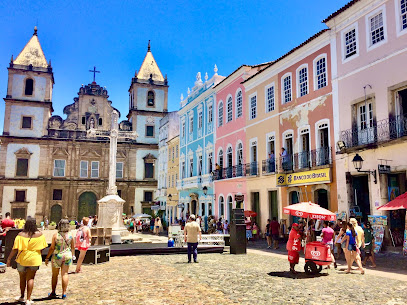
Cidade da Música da Bahia
Explore Bahia's musical soul at Cidade da Música da Bahia, a vibrant museum showcasing the rhythms and heritage of Brazil's diverse music scene.
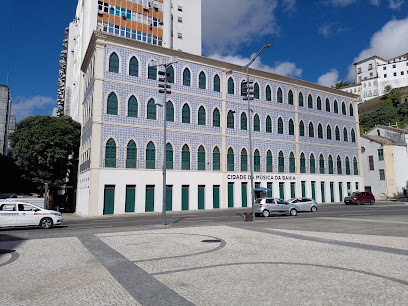
Pé do Caboclo
Discover Pé do Caboclo in Salvador: a landmark celebrating Bahia's independence and rich cultural heritage in a vibrant, historical setting.
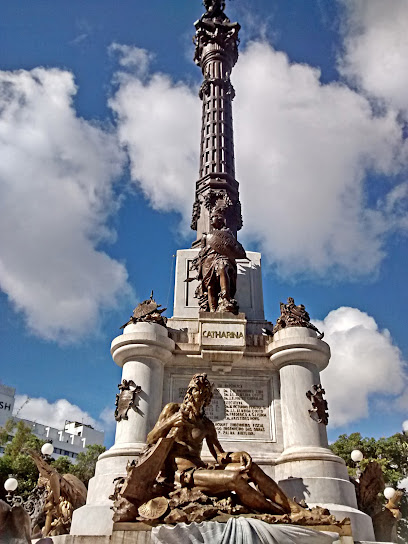
Unmissable attractions to see
Museu Náutico da Bahia - Farol da Barra
Explore Brazil's maritime history at the iconic Farol da Barra, home to a nautical museum with stunning coastal views in Salvador, Bahia.
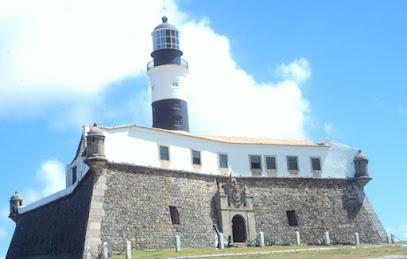
Mercado Modelo
Discover Bahian culture and crafts at Salvador's Mercado Modelo, a historic marketplace with souvenirs, art, and local flavors.

Elevador Lacerda
Experience Salvador from Above: Ride the historic Elevador Lacerda for breathtaking views and a unique journey between two cities.
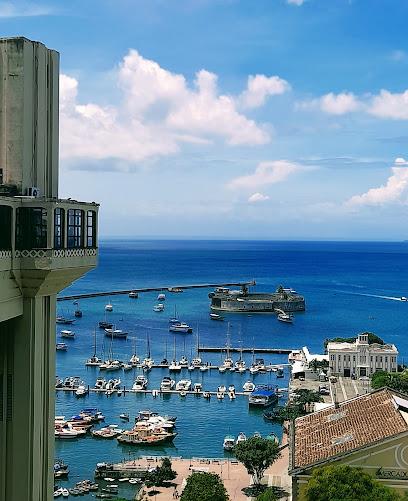
Basílica do Senhor do Bonfim
Discover the spiritual heart of Bahia at the Basílica do Senhor do Bonfim, a symbol of faith, tradition, and cultural syncretism in Salvador.

Itaipava Fonte Nova Arena
Experience the passion of Brazilian football and vibrant events at Salvador's iconic Itaipava Fonte Nova Arena.
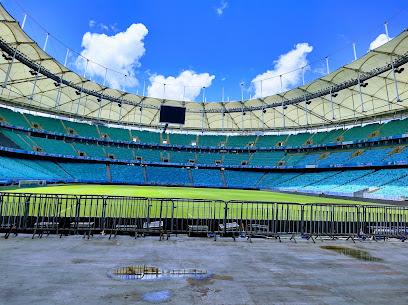
Porto da Barra Beach
Experience the beauty of Porto da Barra Beach in Salvador: sun, history, culture, and unforgettable sunsets await!
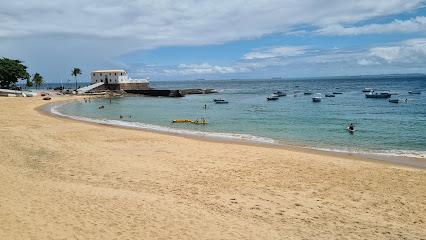
Teatro Castro Alves
Experience the vibrant culture of Salvador at Teatro Castro Alves, a historic landmark and premier performing arts center in Bahia, Brazil.
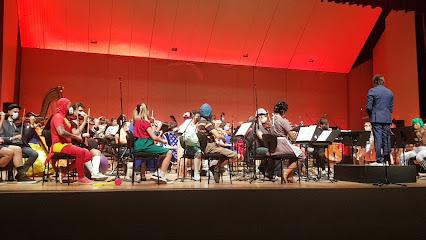
Morro do Cristo
Discover panoramic ocean views and cultural heritage at Morro do Cristo, a must-see Salvador landmark in the vibrant Barra neighborhood.
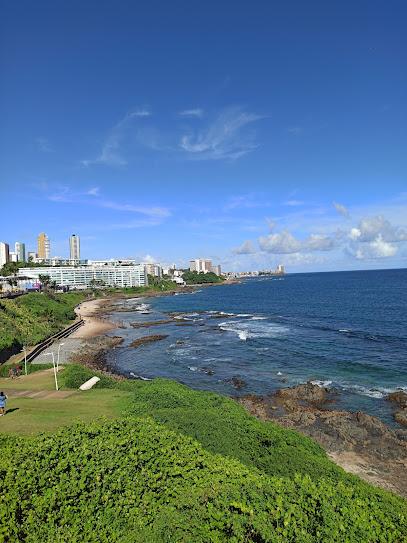
Joventino Silva City Park
Discover Salvador's green heart: Joventino Silva City Park, a vibrant hub for nature, leisure, and culture in the heart of the city.
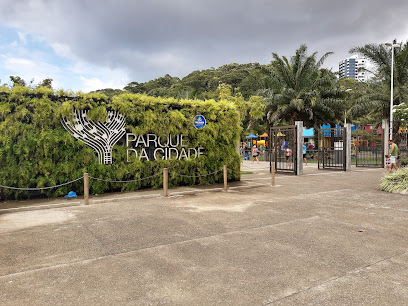
Farol de Itapuã
Explore the iconic Itapuã Lighthouse in Salvador, Bahia: a historic beacon offering breathtaking views and a glimpse into Brazil's maritime past.
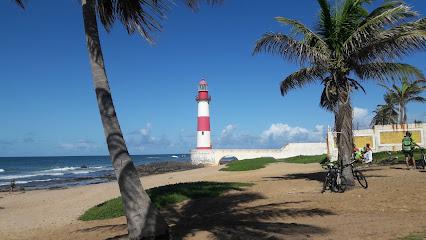
Church and Convent of San Francisco
Discover the opulent Church and Convent of San Francisco in Salvador, a dazzling display of Brazilian Baroque and a UNESCO World Heritage Site.
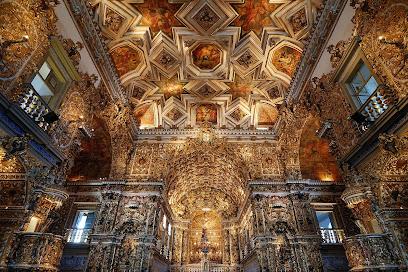
Buraquinho Beach
Discover Buraquinho Beach in Bahia: Where the river meets the sea, offering tranquil waters, natural beauty, and a taste of local Brazilian culture.
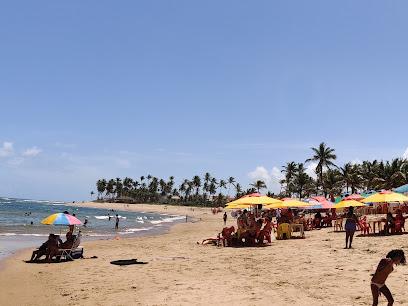
Ponta do Humaitá
Discover Ponta do Humaitá in Salvador: a picturesque peninsula with historic landmarks, stunning sunsets, and panoramic bay views.
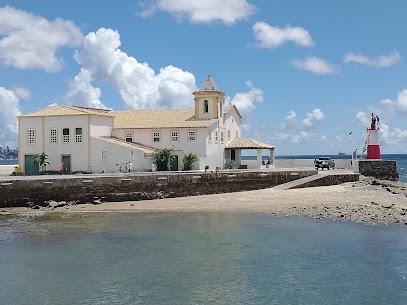
Praia de Arembepe
Discover Arembepe: Bahia's hidden gem with stunning beaches, rich culture, and a laid-back atmosphere, just a short trip from Salvador.
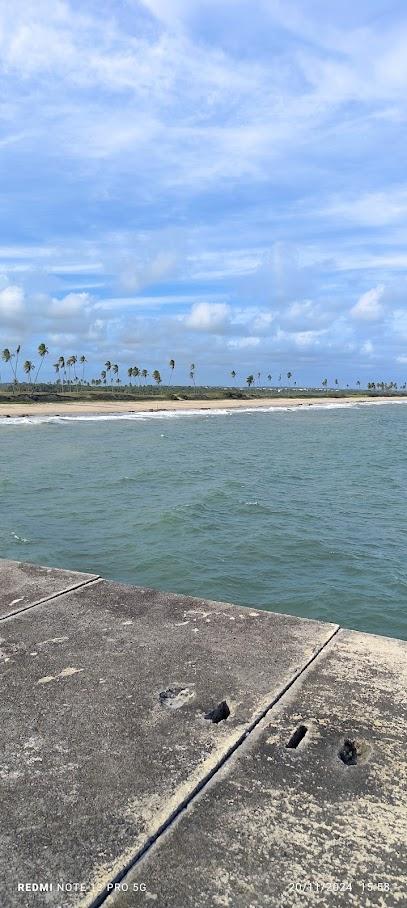
a Casa do Rio Vermelho
Explore the former home of Jorge Amado & Zélia Gattai in Salvador. A cultural epicenter showcasing Brazilian literature, art, and history.
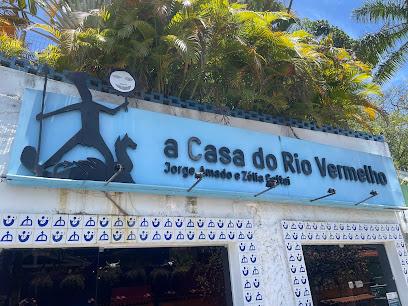
Essential places to dine
Coco Bambu
Experience exquisite seafood dining at Coco Bambu in Salvador - where Brazilian flavors meet coastal charm.
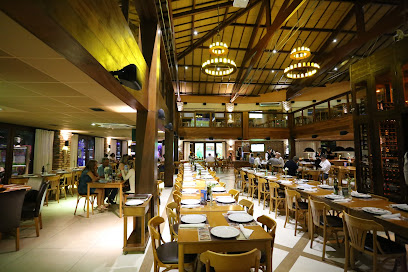
Barravento Restaurant
Experience fresh seafood delights at Barravento Restaurant while enjoying stunning ocean views in Salvador's vibrant Barra neighborhood.
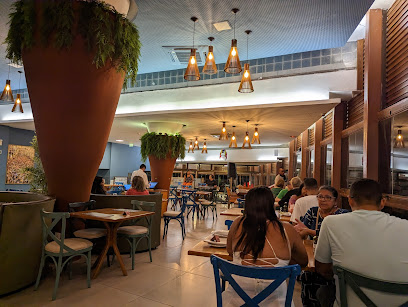
Restaurante Casa de Tereza
Experience the authentic flavors of Brazil at Restaurante Casa de Tereza in Salvador's lively Rio Vermelho neighborhood.
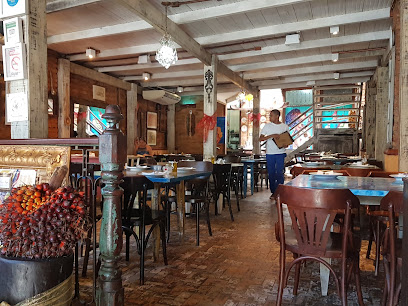
Restaurante Yemanjá
Experience exquisite seafood dining at Restaurante Yemanjá in Salvador, where Bahian flavors meet stunning ocean views for an unforgettable meal.
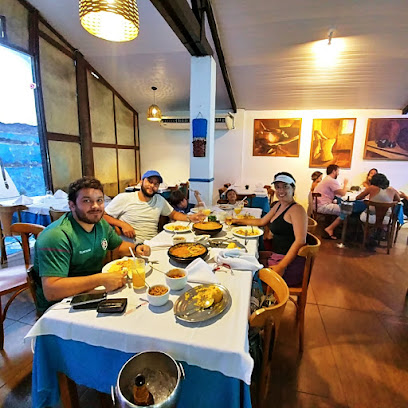
Odoyá
Discover authentic Bahian cuisine at Odoyá, where fresh seafood meets rich cultural heritage in the heart of Salvador's historic Pelourinho district.
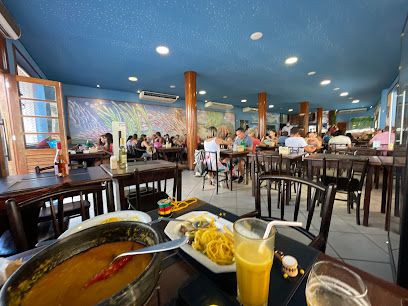
Restaurante Lafayette
Experience exquisite seafood dining in Salvador's Comercio district at Restaurante Lafayette - where fresh flavors meet Bahian hospitality.
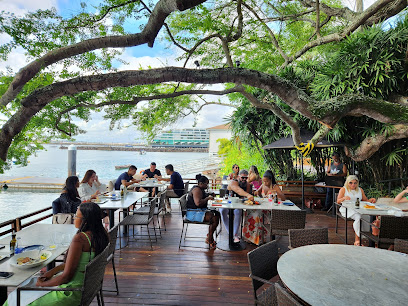
Al Mare
Savor the freshest seafood delicacies at Al Mare in Salvador, where culinary excellence meets breathtaking views.
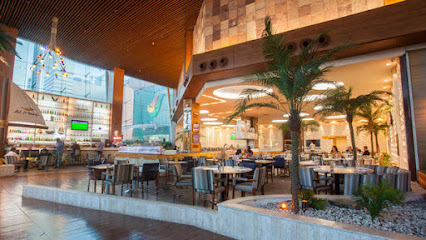
Amado
Experience culinary excellence at Amado in Salvador, where fresh seafood meets breathtaking views for an unforgettable dining adventure.
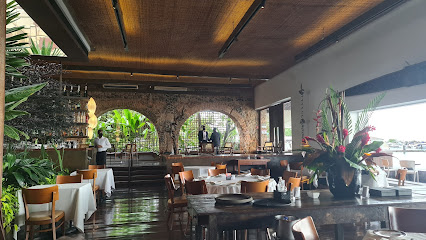
Boteco do França
Discover Bahian culinary delights at Boteco do França in Rio Vermelho - where fresh flavors meet vibrant atmosphere.
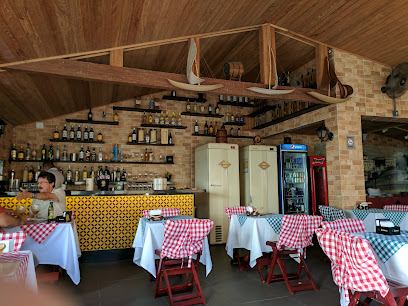
Salvador Dali Restaurante
Experience the fusion of Brazilian and Italian cuisines at Salvador Dali Restaurante in the heart of Rio Vermelho.
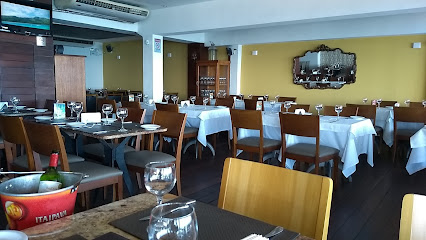
Alfredo'Ro - Restaurante Italiano
Experience authentic Italian flavors at Alfredo'Ro in Salvador - where every dish is crafted with passion and quality ingredients.
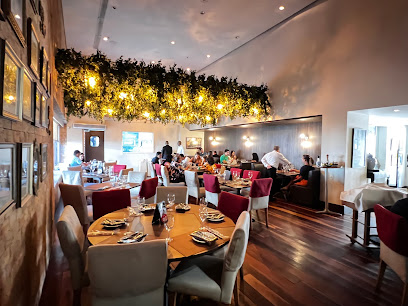
Soho
Discover Soho in Salvador: A premier destination for authentic Japanese cuisine and exquisite sushi creations.
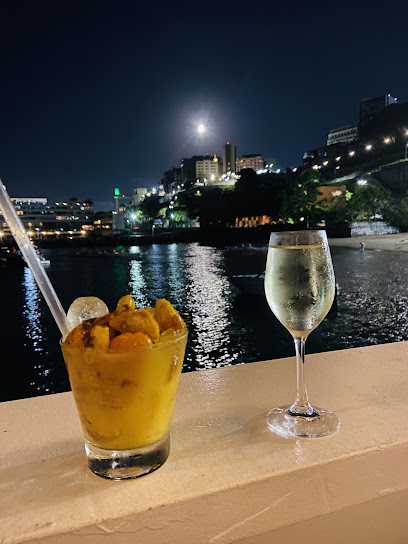
Cuco Bistrô
Discover the vibrant flavors and rhythms at Cuco Bistrô in Salvador's historic Pelourinho district.
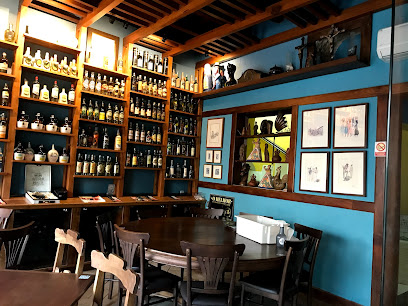
Porto Brasil
Experience the vibrant fusion of Brazilian flavors with Japanese influences at Porto Brasil in Salvador's lively Pituba district.
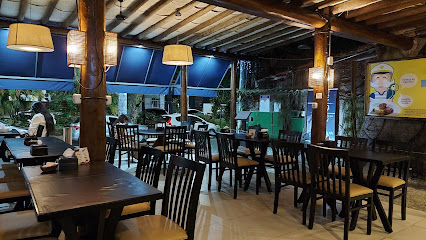
Sal Marinho
Experience the vibrant flavors of Bahia at Sal Marinho - where fresh seafood meets warm hospitality in Salvador.
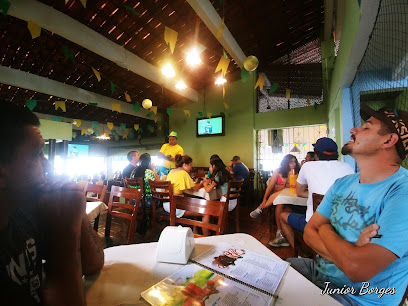
Markets, malls and hidden boutiques
Salvador Shopping
Discover the vibrant blend of shopping, dining, and culture at Salvador Shopping Mall, a premier destination in the heart of Salvador, Bahia.
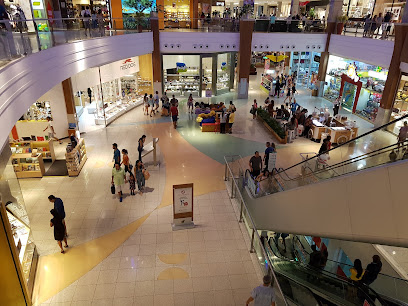
Shopping da Bahia
Discover the vibrant Shopping da Bahia in Salvador, your ultimate destination for shopping, dining, and entertainment in Brazil.
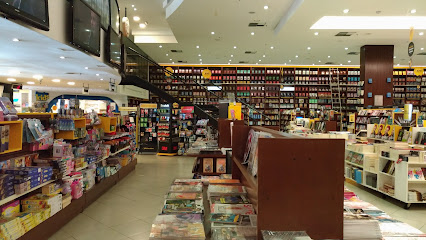
Mercado Modelo
Discover the heart of Salvador at Mercado Modelo, a vibrant market filled with crafts, cuisine, and cultural treasures from Bahia.
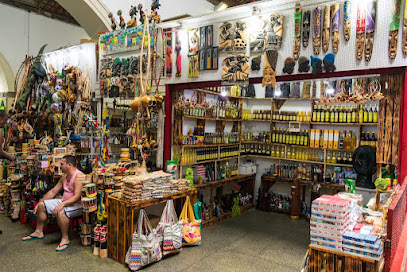
Salvador Norte Shopping
Discover the ultimate shopping experience at Salvador Norte Shopping, featuring diverse stores, dining, and entertainment options in Salvador, Brazil.
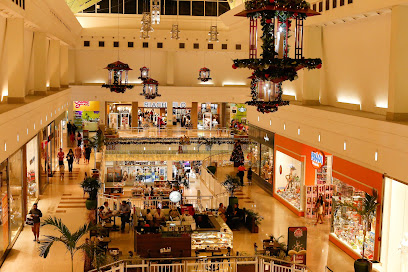
Shopping Center Lapa
Discover Shopping Center Lapa, a vibrant shopping haven in Salvador offering a rich blend of retail, dining, and entertainment experiences.
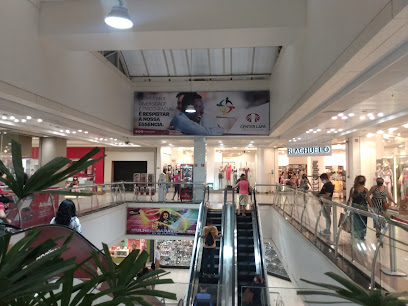
Shopping Piedade
Experience the vibrant shopping scene at Shopping Piedade in Salvador, where local culture meets international retail in a lively atmosphere.
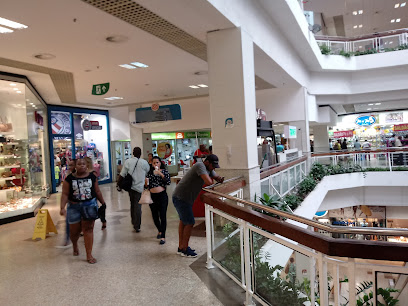
Shopping Itaigara
Experience shopping like never before at Shopping Itaigara, where diverse brands meet delectable dining in a vibrant atmosphere.
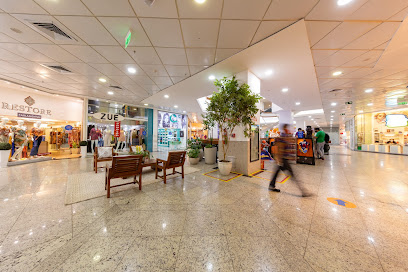
Shopping Barra
Discover the vibrant Shopping Barra in Salvador, Brazil – a shopping haven with diverse stores, dining options, and entertainment for everyone.
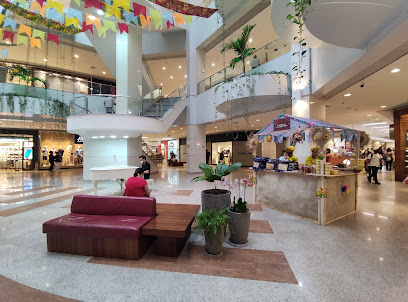
Bahia Outlet Center
Explore the vibrant Bahia Outlet Center in Salvador, where shopping meets authentic local dining and unforgettable experiences await.
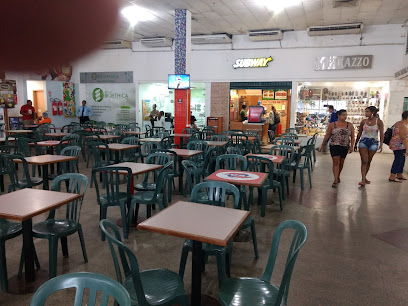
Shopping Paseo Itaigara
Discover the vibrant Shopping Paseo Itaigara in Salvador, your destination for shopping, dining, and entertainment in Brazil.
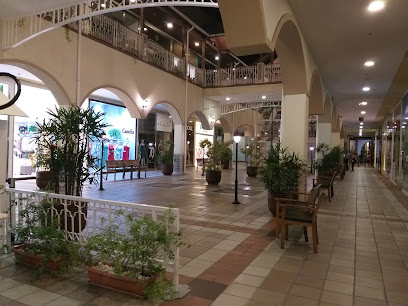
Loja Esquadrão
Explore authentic Bahian crafts and unique souvenirs at Loja Esquadrão, a vibrant shopping destination in Salvador's Nazaré neighborhood.
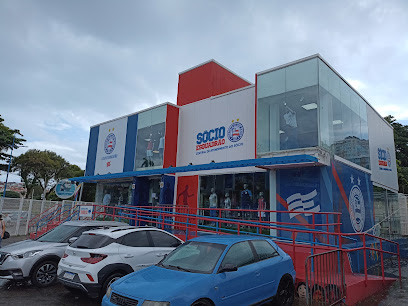
Zunjie Shao Com Imp de Presentes
Explore the vibrant gift shop in Salvador, offering unique local crafts and souvenirs that capture the spirit of Bahia.
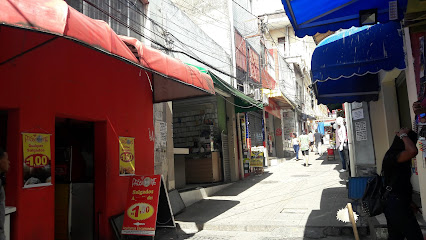
O Blokão
Explore your artistic side at O Blokão in Salvador, where creativity meets community and a treasure trove of art supplies awaits.
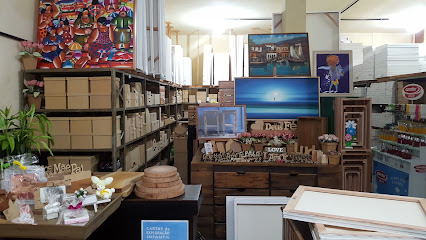
Boutique Do Ilê Aiyê
Explore Afro-Brazilian fashion at Boutique Do Ilê Aiyê, a cultural gem in Salvador's Pelourinho district, offering unique clothing and accessories.
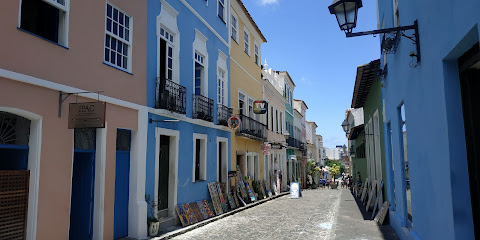
PET BOUTIQUE
Explore PET BOUTIQUE in Salvador: The ultimate destination for pet lovers with a wide range of quality products and a friendly atmosphere.

Essential bars & hidden hideouts
Bar Ulisses
Experience the vibrant nightlife of Salvador at Bar Ulisses, where delectable food meets refreshing drinks in an inviting atmosphere.
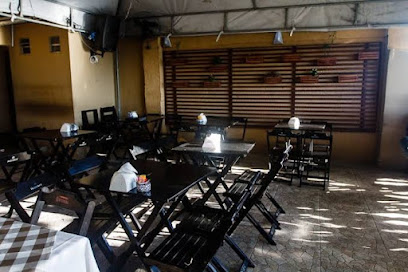
Blue Beach Bar
Discover the vibrant Blue Beach Bar in Salvador, where exquisite gastronomy meets stunning ocean views in a lively atmosphere.
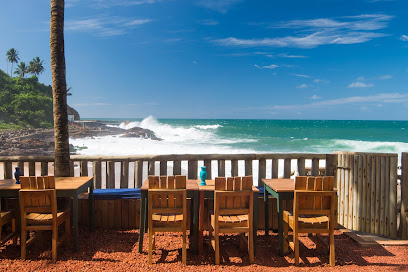
O cravinho
Experience the vibrant cocktail culture of Salvador at O Cravinho, where expertly crafted drinks meet the lively spirit of Pelourinho.
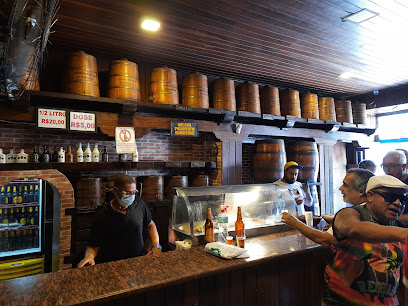
Bar Velho Espanha
Discover the vibrant spirit of Salvador at Bar Velho Espanha, where authentic Brazilian culture meets delicious cuisine and lively entertainment.
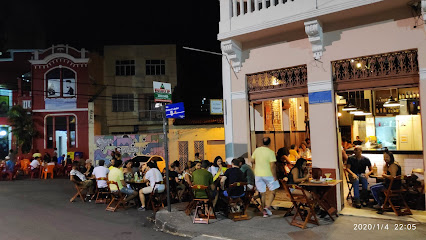
Zaccaria Bar
Experience the vibrant nightlife of Salvador at Zaccaria Bar, where delicious food and drinks meet a lively atmosphere.
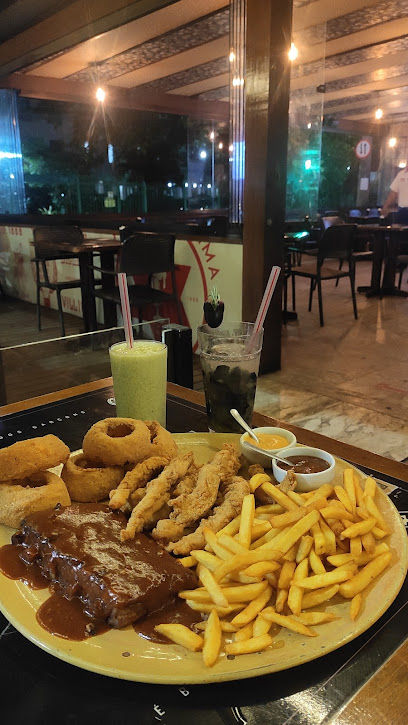
Amsterdam Pop Club
Experience the vibrant nightlife at Amsterdam Pop Club in Salvador, where music, dance, and culture come together for an unforgettable night.
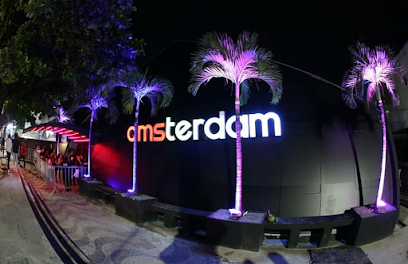
Preto Bar
Discover the lively spirit of Salvador at Preto Bar, where vibrant drinks and delectable food meet an electrifying atmosphere.
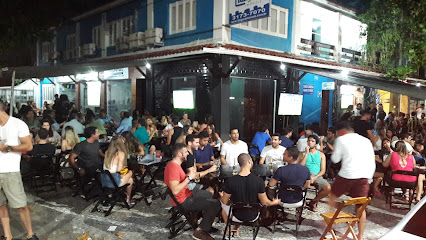
Bar Âncora do Marujo
Experience the vibrant nightlife of Salvador at Bar Âncora do Marujo, where unique cocktails and a lively atmosphere await you.
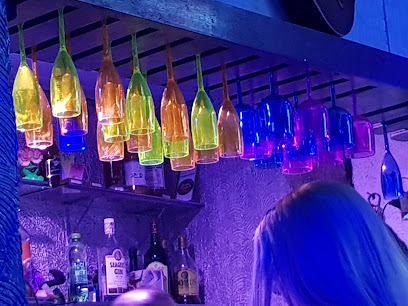
Rio Vermelho Bar
Discover the vibrant nightlife of Salvador at Rio Vermelho Bar, where eclectic drinks and live music create an unforgettable experience.
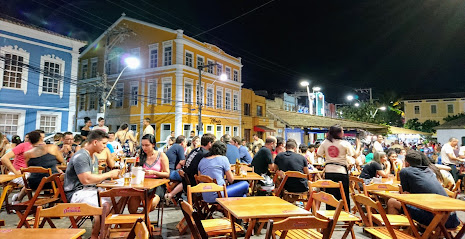
Bar do Léo
Discover the lively spirit of Salvador at Bar do Léo, where delicious drinks and local culture come together in a vibrant atmosphere.
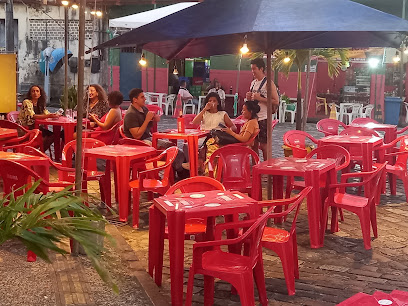
Di Janela - Gastronomia, Restô, Bar
Experience the vibrant flavors of Salvador at Di Janela, where culinary tradition meets a lively bar atmosphere.
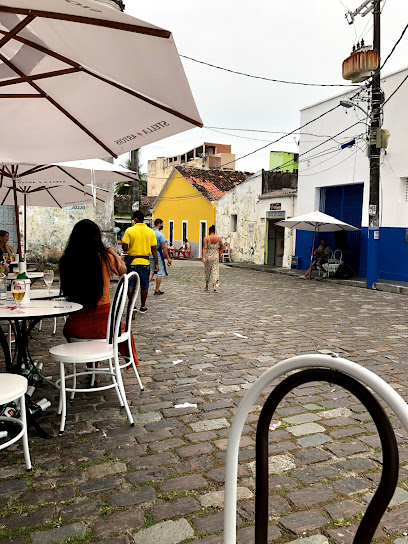
Baía Sunset Bar
Discover the vibrant Baía Sunset Bar in Salvador, where stunning sunsets meet delicious cocktails and lively ambiance for an unforgettable experience.
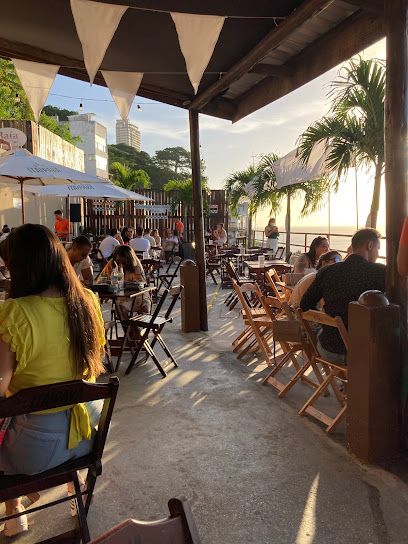
Pra Começar!
Discover the lively spirit of Salvador at Pra Começar - a premier live music bar offering unforgettable performances and a taste of local culture.
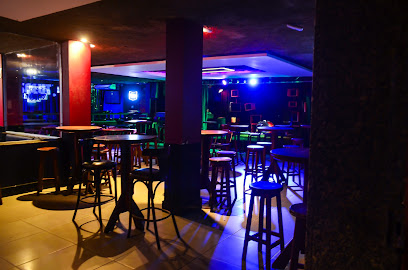
SAN
Discover the vibrant nightlife of Salvador at SAN, a lively bar and disco club in the heart of Rio Vermelho, where music and culture blend seamlessly.
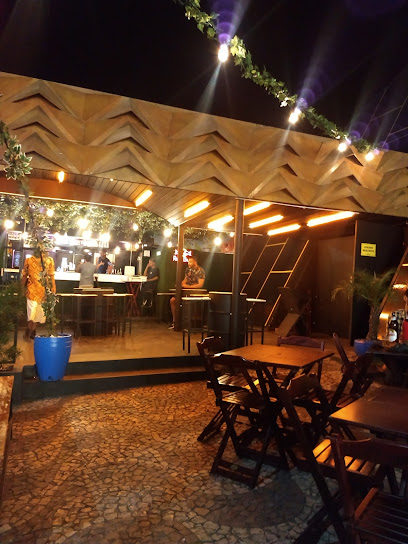
Travel experiences inspired by this city
Explore more travel diariesLocal Phrases
-
- HelloOlá
[oh-lah] - GoodbyeTchau
[chow] - YesSim
[seem] - NoNão
[now] - Please/You're welcomePor favor/De nada
[por fah-vohr/dee nah-dah] - Thank youObrigado/Obrigada
[oh-bree-gah-doo/oh-bree-gah-dah] - Excuse me/SorryCom licença/Desculpe
[kom lee-sen-sah/dee-skool-peh] - How are you?Como vai?
[koh-moh vah-ee] - Fine. And you?Bem. E você?
[beng/eh voh-seh] - Do you speak English?Você fala inglês?
[voh-seh fah-lah een-gleh-s] - I don't understandEu não entendo
[eh-oo now en-ten-doo]
- HelloOlá
-
- I'd like to see the menu, pleaseEu gostaria de ver o cardápio, por favor
[eh-oo goh-stah-ree-ah jee ver ooh kahr-dah-pee-oh/por fah-vohr] - I don't eat meatEu não como carne
[eh-oo now koh-moh kahr-nee] - Cheers!Saúde!
[sah-oo-dee] - I would like to pay, pleaseEu gostaria de pagar, por favor
[eh-oo goh-stah-ree-ah jee pah-gahr/por fah-vohr]
- I'd like to see the menu, pleaseEu gostaria de ver o cardápio, por favor
-
- Help!Ajuda!
[ah-zhoo-dah] - Go away!Vá embora!
[vah ehm-boh-rah] - Call the Police!Chame a polícia!
[shah-meh ah poh-lee-see-ah] - Call a doctor!Chame um médico!
[shah-meh oom meh-dee-koh] - I'm lostEstou perdido
[eh-stoh pehr-dee-doo] - I'm illEstou doente
[eh-stoh doo-en-teh]
- Help!Ajuda!
-
- I'd like to buy...Eu gostaria de comprar...
[eh-oo goh-stah-ree-ah jee kohm-prahr] - I'm just lookingEstou só olhando
[eh-stoh soh oh-lahn-doo] - How much is it?Quanto custa?
[kwahn-toh koos-tah] - That's too expensiveIsso é muito caro
[ee-soh eh mwee-toh kah-roh] - Can you lower the price?Você pode baixar o preço?
[voh-seh poh-dee bah-ee-shahr ooh preh-soh]
- I'd like to buy...Eu gostaria de comprar...
-
- What time is it?Que horas são?
[keh oh-rahs sah-oo] - It's one o'clockÉ uma hora
[eh oo-mah oh-rah] - Half past (10)Dez e meia
[deh-ees ee may-ah] - MorningManhã
[mahn-yah] - AfternoonTarde
[tahr-deh] - EveningNoite
[noy-chee] - YesterdayOntem
[ohn-tehm] - TodayHoje
[oh-zhee] - TomorrowAmanhã
[ah-mahn-yah] - 1Um
[oom] - 2Dois
[doh-ees] - 3Três
[trehs] - 4Quatro
[kwah-troh] - 5Cinco
[seen-koh] - 6Seis
[say-ees] - 7Sete
[seh-teh] - 8Oito
[oy-toh] - 9Nove
[noh-veh] - 10Dez
[deh-ees]
- What time is it?Que horas são?
-
- Where's a/the...?Onde fica o/a...?
[ohn-jee fee-kah ooh/ah] - What's the address?Qual é o endereço?
[kwahl eh ooh ehn-deh-reh-soh] - Can you show me (on the map)?Você pode me mostrar (no mapa)?
[voh-seh poh-dee meh moh-strahr/naw mah-pah] - When's the next (bus)?Quando é o próximo (ônibus)?
[kwahn-doo eh ooh proh-ksee-moh/ohn-ee-boos] - A ticket (to ....)Um bilhete (para ...)
[oom bee-lyet/par-rah]
- Where's a/the...?Onde fica o/a...?
History of Salvador
-
Founded by the Portuguese in 1549, Salvador was established as the first capital of Brazil, serving as a strategic port and administrative center. The city was named São Salvador da Bahia de Todos os Santos, reflecting its location by the Bay of All Saints.
-
During the 16th and 17th centuries, Salvador thrived as a hub for the sugar industry. The fertile lands around the Recôncavo Baiano provided ideal conditions for sugarcane cultivation, making Salvador a crucial part of the transatlantic slave trade, which provided labor for the plantations.
-
Salvador is renowned for its Afro-Brazilian culture, a result of the large population of African slaves brought to work in the sugar plantations. This heritage is evident in the city's music, dance, religion, cuisine, and festivals, including the famous Carnival and the practice of Candomblé.
-
In 1624, Salvador was invaded by the Dutch West India Company. The occupation lasted for a year before Portuguese forces recaptured the city in 1625. This period of conflict left a lasting impact on the city's fortifications and architecture.
-
Salvador played a pivotal role in Brazil’s independence from Portugal. In 1823, the city witnessed significant battles between Brazilian forces and Portuguese troops, culminating in the Siege of Salvador. This struggle ultimately contributed to the proclamation of Brazilian independence.
-
Pelourinho, the historic center of Salvador, is a UNESCO World Heritage site known for its well-preserved colonial architecture, cobblestone streets, and vibrant cultural scene. It was once the commercial and social hub of the city, and today it stands as a living museum of Salvador's rich history.
-
In the late 20th century, Salvador underwent a cultural renaissance, embracing its diverse heritage. The city became a focal point for Brazilian arts, music, and literature, contributing to its reputation as Brazil's cultural capital. Initiatives to preserve and celebrate Afro-Brazilian traditions have also gained momentum.
Salvador Essentials
-
Salvador is served by Deputado Luís Eduardo Magalhães International Airport (SSA), located approximately 28 kilometers from the city center. Direct flights are available from major cities in Brazil and international destinations. Upon arrival, you can reach the city center by taxi, ride-sharing services, or airport shuttle buses. Alternatively, long-distance buses connect Salvador with other major cities in Brazil.
-
Salvador has a variety of transportation options, including buses, taxis, and ride-sharing services like Uber. The city also has a metro system, which is limited but useful for reaching certain key areas. For exploring the historic Pelourinho district, walking is the best option due to narrow streets and pedestrian-only zones. Car rentals are available but navigating traffic and finding parking can be challenging.
-
The official currency in Brazil is the Brazilian Real (BRL). Credit and debit cards are widely accepted in hotels, restaurants, and shops. ATMs are plentiful, but it is advisable to withdraw cash during the daytime and in secure locations. Smaller businesses and local markets may prefer cash payments, so it is wise to carry some local currency.
-
While Salvador is a vibrant and cultural city, it is essential to be cautious. Avoid high-crime areas such as the outskirts of the city and certain neighborhoods like Nordeste de Amaralina, Calabar, and some parts of Fazenda Coutos. Stick to well-lit and populated areas, especially at night. Keep valuables out of sight and be cautious when using ATMs. Always use registered taxis or ride-sharing services.
-
In case of emergency, dial 190 for police assistance, 192 for medical emergencies, and 193 for fire services. Major hospitals like Hospital Geral do Estado and Hospital Português provide emergency medical services. It is highly recommended to have travel insurance that covers medical emergencies. Pharmacies are widely available for minor health issues.
-
Fashion: Do dress comfortably and casually, but avoid overly revealing clothing, especially when visiting religious sites. Religion: Do respect local customs and traditions. When visiting churches, dress modestly and remain quiet. Public Transport: Do be aware of your belongings and avoid displaying valuables. Don't eat or drink on buses. Greetings: Do greet people with a handshake or a cheek kiss, which is common in Brazil. Eating & Drinking: Do try local dishes like acarajé and moqueca. Don't refuse an offer of food or drink from locals, as it can be considered impolite.
-
To experience Salvador like a local, visit the Feira de São Joaquim, a bustling market where you can buy fresh produce and local crafts. Attend a capoeira performance, a traditional Afro-Brazilian martial art. Don't miss the sunset at Farol da Barra. For an authentic culinary experience, try dining at traditional Bahian restaurants and enjoy a meal of acarajé from street vendors.
Trending Landmark in Salvador
-
Museu Náutico da Bahia - Farol da Barra
-
Elevador Lacerda
-
Morro do Cristo
-
Monumento As Meninas do Brasil (Gordinhas)
-
Square Two July
-
Largo Terreiro de Jesus
-
Casa do Carnaval da Bahia
-
Bahia Museum of Art
-
Centro Histórico
-
Cathedral of Salvador
-
PASTEL DA BINA/Tempero do Camaleon
-
Fallen Cross Monument
-
Centro Histórico de Salvador, Bahia
-
Cidade da Música da Bahia
-
Pé do Caboclo
Nearby Cities to Salvador
-
Things To Do in Recife
-
Things To Do in Fortaleza
-
Things To Do in Brasília
-
Things To Do in Rio de Janeiro
-
Things To Do in São Paulo
-
Things To Do in Florianópolis
-
Things To Do in Hernandarias
-
Things To Do in Foz do Iguaçu
-
Things To Do in Puerto Iguazú
-
Things To Do in Villarrica
-
Things To Do in San Bernardino
-
Things To Do in Ypacarai
-
Things To Do in Aregua
-
Things To Do in Encarnacion
-
Things To Do in Asuncion



















